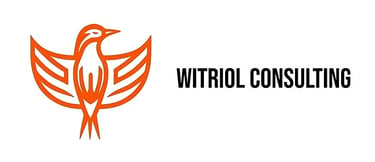Industry Specialization: The Need for Niche Expertise
In an increasingly complex and competitive business environment, the importance of industry specialization has never been more apparent. Companies across sectors are realizing that generalist approaches often fall short in addressing the nuanced challenges specific to their industry. This is where the power of niche expertise comes into play. Industry specialization allows businesses to leverage deep knowledge and experience in a particular field, providing a significant edge in strategy, operations, and overall market performance. For consultants, industry specialization is not just a competitive advantage—it's becoming a necessity. As businesses seek out partners who truly understand their unique challenges and opportunities, consultants with niche expertise are in high demand. This blog explores the growing need for industry specialization, the benefits it offers, and how consultants can develop and leverage niche expertise to drive success for their clients.
DATA DRIVENMICROSOFTORGANIZATIONMENTORMANAGEMENT CONSULTINGTRADITIONAL ECONOMYMERGERSCONSULTINGPARTNERSHIPSGROWTHACQUISITIONSLEADERSHIPSTRATEGYTEAMWORKFINANCECLIENTSSUCCESSTRAININGLEADERSTECHNOLOGYAI
Shaun Witriol
9/6/20247 min read


Industry Specialization: The Need for Niche Expertise
In an increasingly complex and competitive business environment, the importance of industry specialization has never been more apparent. Companies across sectors are realizing that generalist approaches often fall short in addressing the nuanced challenges specific to their industry. This is where the power of niche expertise comes into play. Industry specialization allows businesses to leverage deep knowledge and experience in a particular field, providing a significant edge in strategy, operations, and overall market performance.
For consultants, industry specialization is not just a competitive advantage—it's becoming a necessity. As businesses seek out partners who truly understand their unique challenges and opportunities, consultants with niche expertise are in high demand. This blog explores the growing need for industry specialization, the benefits it offers, and how consultants can develop and leverage niche expertise to drive success for their clients.
1. The Evolution of Industry Specialization
Traditionally, many consulting firms and business professionals operated as generalists, offering a wide range of services across various industries. While this approach provided flexibility and a broad client base, it often led to a superficial understanding of specific industries. As markets evolved and became more complex, the need for deeper, more specialized knowledge grew.
Over the past few decades, industry specialization has emerged as a critical trend in consulting and business strategy. The rise of technology, globalization, and industry-specific regulations has made it essential for businesses to work with experts who understand their unique context. Clients increasingly prefer consultants who can offer tailored solutions based on a profound understanding of their industry, rather than generic advice that might not fully address their needs.
2. The Benefits of Industry Specialization
A. Deeper Understanding of Industry Dynamics
One of the most significant advantages of industry specialization is the deep understanding it provides of the specific dynamics within a sector. Every industry has its own set of challenges, opportunities, regulations, and market forces. A consultant with niche expertise can navigate these complexities with ease, providing clients with insights that a generalist might overlook.
For example, in the healthcare industry, a consultant specializing in healthcare will have a deep understanding of regulatory requirements, patient care standards, and the impact of emerging technologies like telemedicine. This knowledge allows them to offer strategic advice that is not only relevant but also actionable and compliant with industry standards.
B. Enhanced Credibility and Trust
Clients are more likely to trust consultants who demonstrate a deep understanding of their industry. Industry specialization enhances credibility, as clients feel confident that the consultant has the necessary expertise to address their specific challenges. This trust is crucial in building long-term client relationships and in securing repeat business.
A consultant with a strong reputation in a particular industry is also more likely to be sought after for high-profile projects and leadership roles. Their specialized knowledge positions them as thought leaders, further enhancing their influence and reach within the industry.
C. Tailored Solutions for Complex Problems
Generalist consultants often rely on broad frameworks and methodologies that may not fully address the intricacies of a particular industry. In contrast, industry specialists can develop and implement tailored solutions that consider the unique aspects of the client's business and industry.
For instance, a consultant specializing in the financial services industry will be well-versed in the specific regulatory environment, risk management practices, and technological advancements relevant to that sector. They can design solutions that not only solve immediate problems but also position the client for long-term success within the industry.
D. Competitive Advantage in the Marketplace
In a crowded consulting marketplace, industry specialization provides a clear competitive advantage. As businesses increasingly seek out consultants with niche expertise, those who position themselves as industry specialists can command higher fees and attract more prestigious clients.
Specialization also allows consultants to differentiate themselves from competitors. By focusing on a specific industry, consultants can build a strong brand identity and reputation, making them the go-to experts for businesses in that sector.
3. Developing Niche Expertise: A Roadmap for Consultants
For consultants looking to develop industry specialization, the journey requires a strategic approach. Building niche expertise involves deepening knowledge, gaining experience, and positioning oneself as an authority within the industry.
A. Deepening Industry Knowledge
The first step in developing niche expertise is to deepen your knowledge of the chosen industry. This involves more than just understanding the basics; it requires a thorough grasp of the industry's history, current trends, key players, regulatory environment, and emerging challenges.
Ways to Deepen Industry Knowledge:
Continuous Learning: Stay updated with industry publications, research papers, and reports. Attend industry conferences, seminars, and workshops to learn from experts and network with industry professionals.
Specialized Certifications: Pursue certifications or advanced degrees that are recognized within the industry. For example, a consultant specializing in healthcare might pursue a certification in healthcare management or a related field.
Industry-Specific Training: Participate in training programs or courses that focus on industry-specific skills and knowledge.
B. Gaining Relevant Experience
Experience is crucial in developing industry specialization. The more experience you have working within a specific industry, the better you will understand its intricacies and nuances.
Strategies for Gaining Industry Experience:
Focus on Industry-Specific Projects: Seek out projects that allow you to work closely with businesses within your chosen industry. This hands-on experience is invaluable in developing practical knowledge and insights.
Work with Industry Leaders: Collaborate with industry leaders or organizations that are known for their expertise in the field. This not only enhances your experience but also helps build your professional network.
Case Studies and Research: Conduct in-depth case studies or research projects within the industry. These can be used to showcase your expertise and contribute to industry knowledge.
C. Building a Strong Industry Network
Networking is an essential component of industry specialization. Building relationships with key players in the industry can open doors to new opportunities and help you stay informed about the latest developments.
Networking Strategies:
Join Industry Associations: Become a member of industry associations or professional organizations. These groups often provide access to exclusive resources, events, and networking opportunities.
Engage on Industry Forums and Social Media: Participate in online forums, LinkedIn groups, and social media platforms where industry professionals discuss trends and challenges. Sharing your insights and engaging in discussions can help establish your authority.
Mentorship and Collaboration: Seek out mentors who are experts in the industry. Collaborate with other consultants or professionals to share knowledge and insights.
D. Positioning Yourself as an Industry Expert
Once you have developed deep knowledge and experience, it's important to position yourself as an industry expert. This involves actively promoting your expertise and demonstrating your value to potential clients.
Ways to Position Yourself as an Expert:
Content Creation: Write articles, blogs, or whitepapers on industry-specific topics. Publish your content on your website, LinkedIn, or industry publications to reach a broader audience.
Speaking Engagements: Participate in speaking engagements at industry conferences, webinars, or workshops. Public speaking is a powerful way to showcase your expertise and connect with potential clients.
Thought Leadership: Engage in thought leadership by offering insights and opinions on industry trends and challenges. This can include participating in panel discussions, interviews, or podcasts.
4. The Role of Industry Specialization in Consulting Success
For consulting firms and individual consultants, industry specialization is increasingly becoming a key driver of success. As clients demand more tailored and relevant solutions, those with niche expertise are better positioned to meet these needs and deliver value.
Impact on Client Relationships:
Industry specialization fosters stronger client relationships by building trust and credibility. Clients are more likely to engage with consultants who understand their industry and can speak their language. This leads to more meaningful collaborations and higher client satisfaction.
Impact on Business Growth:
Specialized consultants can attract more high-value clients and command premium fees. Their deep industry knowledge allows them to deliver results that drive business growth, leading to repeat business and referrals.
Impact on Professional Development:
For individual consultants, industry specialization provides opportunities for continuous learning and professional growth. By becoming an expert in a specific field, consultants can differentiate themselves in the marketplace and build a lasting career.
5. Case Studies: Industry Specialization in Action
To illustrate the power of industry specialization, let's look at a few case studies of consultants who have successfully leveraged niche expertise to drive success for their clients.
Case Study 1: Healthcare Consulting
A consultant specializing in healthcare worked with a hospital to streamline its patient care processes. The consultant's deep knowledge of healthcare regulations, patient safety standards, and technological advancements allowed them to design a solution that improved patient outcomes, reduced costs, and ensured compliance with regulatory requirements. The hospital saw a 20% increase in patient satisfaction and a 15% reduction in operational costs.
Case Study 2: Financial Services Consulting
A consultant with expertise in financial services was hired by a bank to improve its risk management practices. The consultant's knowledge of the financial industry's regulatory environment and risk management frameworks enabled them to develop a comprehensive risk management strategy. The bank successfully mitigated risks, improved compliance, and enhanced its reputation in the market.
Case Study 3: Technology Consulting
A consultant specializing in technology worked with a software company to develop a new product for the healthcare industry. The consultant's understanding of both the technology and healthcare industries allowed them to design a product that met the specific needs of healthcare providers. The product was a success, and the company saw a 30% increase in market share within the healthcare sector.
6. Challenges of Industry Specialization
While industry specialization offers numerous benefits, it also comes with challenges. These challenges include staying updated with industry trends, maintaining flexibility, and avoiding over-specialization.
Staying Updated:
Industries are constantly evolving, with new technologies, regulations, and market trends emerging regularly. Industry specialists must stay updated to remain relevant and effective.
Maintaining Flexibility:
While specialization is important, it's also essential to maintain some level of flexibility. Consultants should be open to learning about adjacent industries or related fields to provide comprehensive solutions.
Avoiding Over-Specialization:
Over-specialization can limit opportunities if the demand for expertise in a particular industry declines. Consultants should continuously assess market trends and consider diversifying their skills if necessary.
Conclusion
Industry specialization is no longer a luxury—it's a necessity in today's complex business environment. For consultants, developing niche expertise is the key to standing out in a crowded marketplace, building stronger client relationships, and delivering exceptional value. By focusing on a specific industry, consultants can position themselves as trusted advisors who understand their clients' unique challenges and opportunities.
As the business world continues to evolve, the demand for specialized knowledge will only grow. Consultants who invest in industry specialization will be well-positioned to lead their clients to success and achieve their own professional growth. The journey to becoming an industry specialist requires dedication, continuous learning, and strategic positioning, but the rewards are well worth the effort.
At Witriol Consulting, we understand the challenges that executives face in managing their time and responsibilities. Our tailored consulting services are designed to help you streamline processes, optimize productivity, and achieve your business goals. Contact us today to learn how we can support you in your journey to success.
💬 Call to Action: Like and follow Witriol Consulting on LinkedIn, Instagram, Facebook, and YouTube for more insights and strategies on effective leadership and time management.
Current Certifications
Small Local Business Enterprise (SLBE) - (San Diego)
Local Small Business Enterprise - (LSBE) - (Los Angeles)
Minority Owned Business (MBE) - (San Diego and Los Angeles, Federal)
Small Business (Micro) - (California)
Disadvantaged Business Enterprise - (California, Arizona, Oregon, Hawaii)
Small Disadvantaged Business - (Federal)
Asian Pacific Business Enterprise - (Federal)
Pending Certifications
8a - (Federal)
© 2024. All rights reserved.


certifications
consultations
